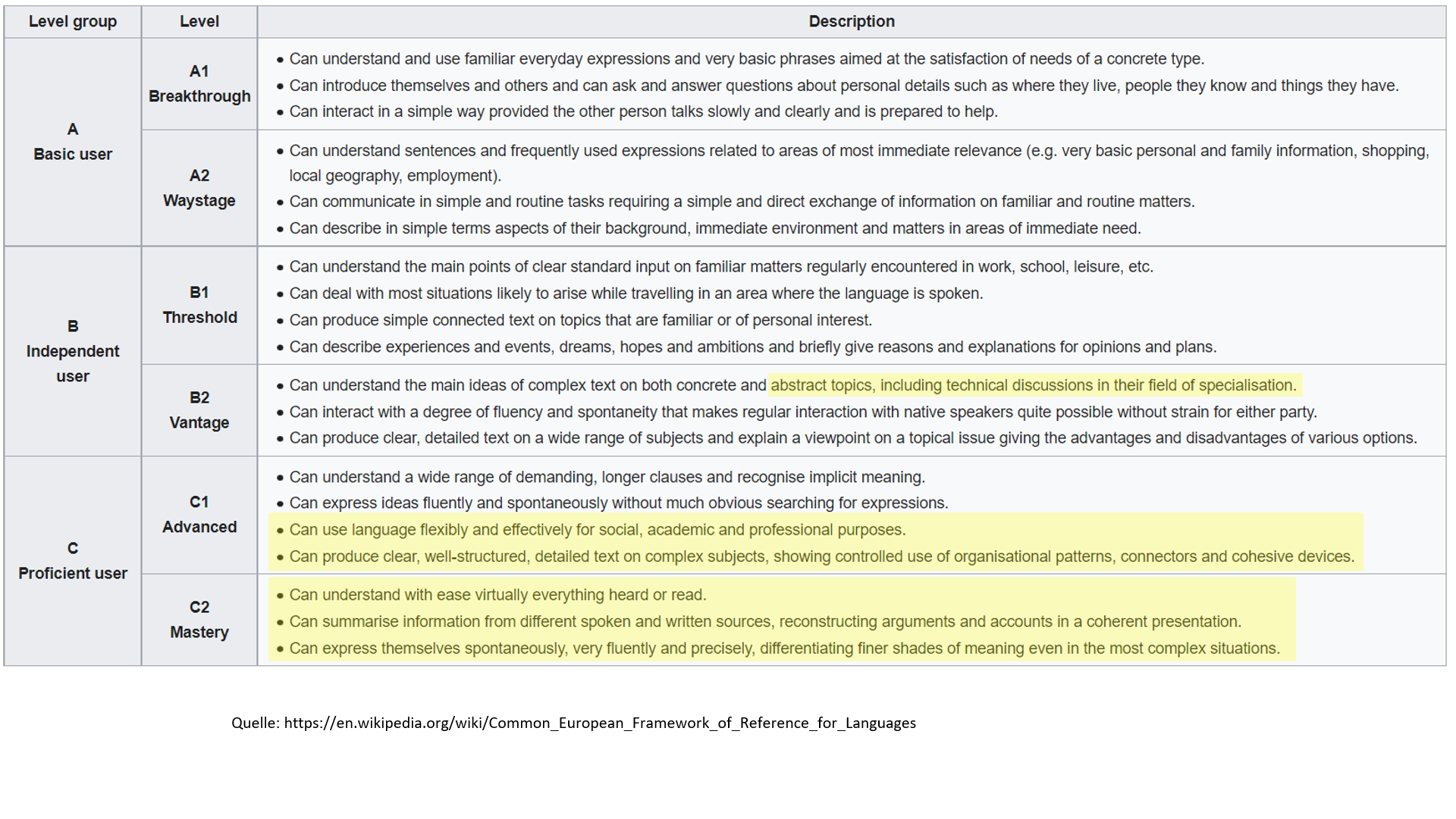Profession-specific hashtags make it easier to find partners for language sparring. When it comes to jobs and careers, preparing professional discussions and presentations in foreign languages is particularly important. On LinkedIn, one has the highest probability of finding a suitable person for sparring among the 830 million users. Especially for emigrants and immigrants or for studying abroad, learning foreign languages at a high level is important. The usual language teachers are hardly helpful for technical discussions in engineering and technology, because they then have to act outside the subject. They usually only have a superficial knowledge of subjects outside of linguistics, e.g. engineering and the other STEM subjects.
Through several coincidences, Konrad Rennert was confronted with the language problem for immigrants. Since then, he has been involved with the CLIL method of foreign language teaching, in which one mainly learns factual content and at the same time develops one’s competence in a foreign language. Through these experiences and projects, Konrad is able to estimate the effort required by the immigrants concerned. He has learned about learning paths and followed them together with mentees in order to achieve the goals set.
His conclusion: In order for professional integration to succeed, native-speaker experts must be involved in DaF further education and training from the levels for independent and competent language use. The reason is: when immigrant skilled workers and engineers work together with German colleagues on an equal footing, communication must also function flawlessly. The processes must not suffer from the fact that the immigrant part of the team communicates inadequately because their German language skills have only been sufficiently trained for simple communication. This can be seen from the colour coding in the table with the levels according to the Common European Framework of Reference:
 https://en.wikipedia.org/wiki/Common_European_Framework_of_Reference_for_Languages
https://en.wikipedia.org/wiki/Common_European_Framework_of_Reference_for_Languages
Language teachers are not mechatronics engineers, IT specialists or professionals in nursing professions. They cannot adequately prepare their students for technical discussions and provide technical vocabulary for this purpose. This can only be done by professionals who are involved as mentors for immigrants when they have reached a DaF level that does not require interpreters. Such specialists are rarely found at regionally oriented adult education centres. At best, they can be found at providers of nationwide online continuing education. But how can the search for mentors and specialists and the matching of supply and demand be coordinated? This is where professional and career networks like LinkedIn are helpful, because groups can be set up there to bring teachers and students together. This applies not only to migrants coming to Germany, but also to Germans who want to study abroad. For the preparation of high-level professional discussions, one could look for tandem partners on the globally positioned LinkedIn. Those who would like to participate and are willing to engage in intercultural exchange in the context of their own profession deposit suitable hashtags in their LinkedIn profile and publications. For the German-speaking DACH region, XING might be enough. The reach is greater on LinkedIn. More than 830 million people are registered there because they consider it useful for their professional advancement. You could find your own colleagues with hashtags like this: #DafFachinformatiker, #DafMechatroniker or #DafAltenpflege when it comes to professional conversations in German. For English as a foreign language (EFL), it would look like this: #EflInformationTechnologySpecialist, #EflMechatronicsEngineer or #EflGeriatricNurses Depending on the desired target language and profession, one could predefine the hashtags standardised for this purpose and use them in publications to find language tandems or teams together more quickly. Those who do not want to do this on a voluntary basis can register on globally oriented language platforms. In return for a share of the turnover, these provide the necessary infrastructure to handle communication and billing. bluepages GmbH, based in Kassel, Germany, offers advice and services to efficiently compile profession-specific vocabularies. For this purpose, the author (KonradRennert) has created three groups on LinkedIn. Interested colleagues from Germany and abroad can become members there. The first workshop on vocabulary creation is a pilot project. Participation in the pilot project is free of charge. More details can be found in German at https://konrad-rennert.de/online-workshop-mehrsprachige-multimediale-bildungsmaterialien
or in English at
Press release on the online workshop Creating Multilingual Multimedia Materials
